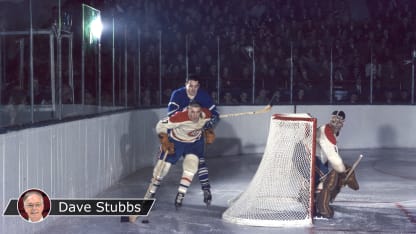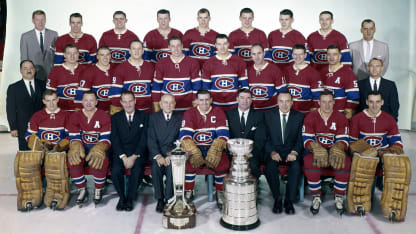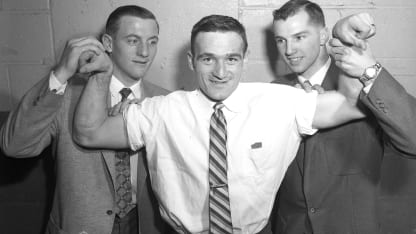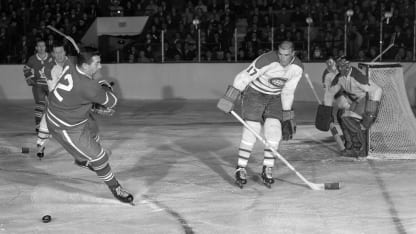1959-60 Montreal Canadiens, winner of the Stanley Cup and Prince of Wales Trophy. Back row, from left: trainer Larry Aubut, Henri Richard, Bill Hicke, Claude Provost, Don Marshall, Ralph Backstrom, Andre Pronovost, Marcel Bonin, trainer Hec Dubois. Middle row, from left: publicity director Camil Desroches, Dickie Moore, Jean-Guy Talbot, Al Langlois, Jean Beliveau, Ab McDonald, Bob Turner, Phil Goyette, Bernie Geoffrion, publicist Frank Selke Jr. Front row, from left: Charlie Hodge, Doug Harvey, president Hartland Molson, GM Frank Selke, Maurice Richard, assistant GM Ken Reardon, coach Toe Blake, Tom Johnson, Jacques Plante.
"My berth on the train was in front of Jean (Beliveau). Some trips, there wasn't a dining car, so we'd bring our own food. Jean and I would eat our sandwiches, talk and go to sleep, and wake up in the next city."
No matter how dominant those Canadiens were, Talbot remembers them being driven by a constant fear of failure, in their own eyes and those of their fans to whom a Stanley Cup parade was a rite of spring.
"We worked for those championships, don't you worry," Talbot said. "Before every game, we were afraid of losing. We worked so hard and the harder we worked, the more we won. We had a super team, all the players were like brothers, OK? Everybody went everywhere together, we never had a fight.
"The money we made wasn't much, but it was better than lots of people. I was happy, going to the NHL and winning beyond that. Lots of good players never won the Stanley Cup -- Gilbert Perreault, Marcel Dionne, Rod Gilbert, Jean Ratelle, Bill Gadsby … all good players. You have to be in the right place at the right moment."







